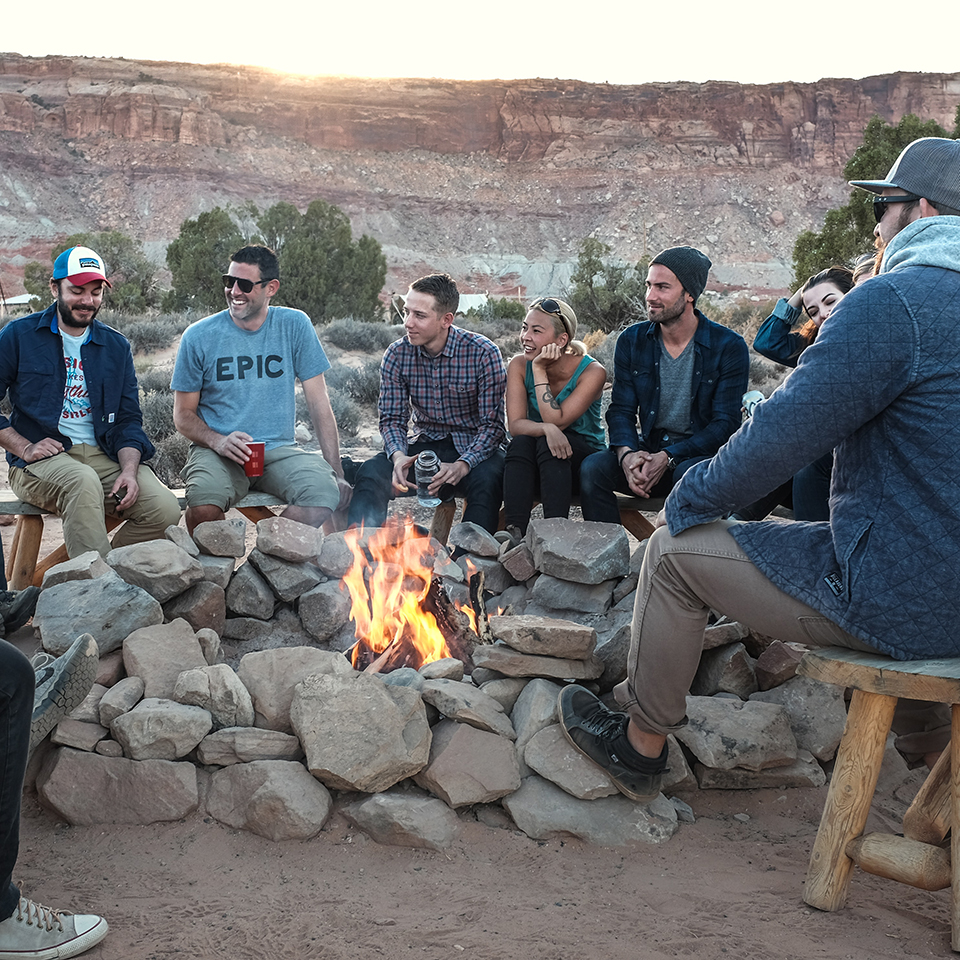You can only have two of these three things: home life, career, or friendship. That’s what I’ve been told anyway. And in my own experience, it is the third category, friendship, that has suffered in the last few years in favor of the other two. But I’ve begun to wonder lately if family and work would be a lot better if I could attempt the trifecta. My soul needs something. Perhaps yours does too. I have a couple of great text groups and lots of friendly interactions on Twitter that I am grateful for; but this year, I am resolving to cultivate my best face-to-face friendships, and defy the popular wisdom. Perhaps a little medieval wisdom and some contemporary buddy films can help.
Writing about and promoting friendship is an ancient art. Cicero wrote a Stoic treatise on it called De amicitia, and St. Augustine elaborated on the same theme in various ways throughout his Confessions. The twelfth-century Cistercian monk, Aelred of Rievaulx, built upon both Cicero and Augustine in his Spiritual Friendship, a great work which I have recently revisited. Aelred’s wisdom is particularly timely for a culture where there are not only strong competing forces of home and career, but people have fewer friends than ever, and loneliness is now pandemic. Many people, single and married, feel the way I sometimes do: surrounded by the love of family, and doing a great job at work, but also lonely at times—lacking a third dimension.
Book I of Aelred’s Spiritual Friendship is a dialogue with a brother monk named Ivo, whom Aelred notices is unduly isolated and desirous of interaction. Aelred explains the value of friendship from Scripture and pagan philosophy, and the two monks agree that friendship rooted in Christ is of the greatest benefit. To Aelred, it is “eternal if it is true friendship.” A friend can be an alter ego, even a soul mate—a term that need not be reserved for married love. Aelred reminds us that “nature from the very beginning implanted the desire for friendship and charity in the heart of man.”
How many of us have too many casual acquaintances or professional relationships and too few real friends? Aelred tells us, “Spiritual friendship . . . should be desired not for consideration of any worldly advantage or for any extrinsic cause, but from the dignity of its own nature.” He quotes Proverbs 17:17 to Ivo: “He that is a friend loves at all times.”
As someone who has always been oriented towards achievement, I admit I am sometimes worried about what people will think of me. I am prone to imagine that even my closest relationships are dependent upon continuing to perform in certain ways or maintaining certain views or attitudes. I keep my guard up out of fear of rejection. On this point, Aelred reminds us, paraphrasing Psalm 10:6, that “he who does not love his own soul will not be able to love the soul of another.” I am a good friend to someone else if I believe that despite all my flaws, I am worth Jesus’ suffering and death. Moreover, if I believe I have any good sense to share with others, then I need to be open to receiving it from them, even if it doesn’t always make me feel like a winner.
Many married people are blessed to call their spouses their best friends. I am one. But I want friends outside my marriage too. I want people around me whose listening ears and wise tongues make me a better husband, father, employee, and citizen. Aelred says, “I might almost say friendship is nothing else but wisdom.”
Maybe a revival of friendship and its accompanying wisdom is on the cultural horizon. Sam Mendes’ 1917, like many great war stories, depicts a particular kind of intense, short-lived friendship on the battlefield. Guy Ritchie’s The Gentlemen, like many gangster tales, balances old loyalties with new alliances born of circumstances on the streets. Best of all are two Academy Award nominated films from 2019: Ford v Ferrari and Once Upon a Time . . . in Hollywood.
James Mangold’s Ford v Ferrari is a most enjoyable buddy picture. Matt Damon plays the famous racer and car builder, Carroll Shelby, and Christian Bale plays the British driver, Ken Miles. The two are from different worlds and have different temperaments, but they belong together. They have a mutual passion for racing cars, and each has a unique ability to point out the other’s strengths and weaknesses amid common enemies. They fight with each other, but they also stick up for each other. In the end, they win together. And they lose together. Shelby cools Miles off when his passions overflow, and Miles inspires Shelby to take a courageous risk when he feels pressure to play it safe.
A different dynamic is at play in Quentin Tarantino’s Once Upon a Time . . . in Hollywood, which is an even more fun and more powerful buddy movie from last year. Leonardo DiCaprio plays Rick Dalton, a once-famous western film star, whose stunt man and constant companion is Cliff Booth, played by Brad Pitt. “A friend is tested in necessity,” Aelred says, and this proverb proves true in Once Upon a Time . . . in Hollywood. With the two men complementing each other throughout, the film culminates in a spectacularly gruesome display of neighbor love. The friendship between Rick and Cliff serves others in a way that the friends themselves likely never expected. And yet, true friends always know that two together serves a greater purpose than one alone. Aelred, quoting Cicero, brings this home: “Friendship is mutual harmony in affairs human and divine coupled with benevolence and charity.”
I want more of that in my life.
With Aelred’s medieval Christian wisdom and some of today’s cinematic inspiration, I am determined to be a better friend this year. Will you join me?
